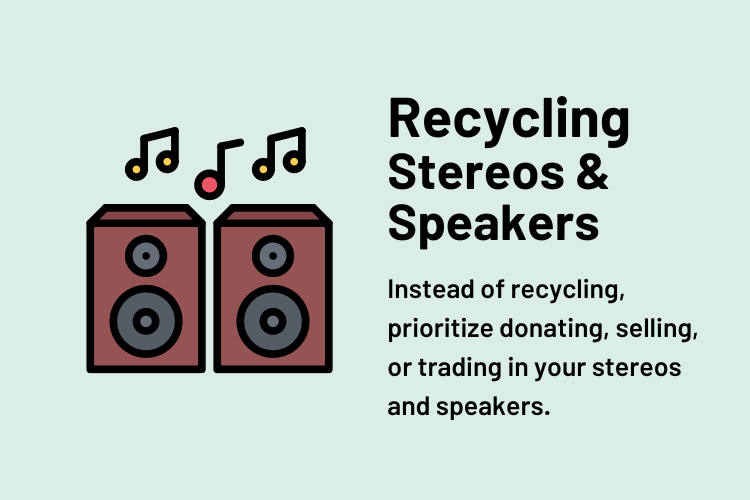
Got a car stereo that’s sounded better in days past? Looking for a way to upgrade your home stereo system with something a little more modern? Regardless of your stereo recycling challenge, there are methods for dealing with this type of e-waste, too. By recycling your old stereo equipment, you’ll be keeping common electronics toxics from ending up in the landfill such as brominated flame retardants (BFRs), mercury, cadmium, and lead. And you’ll help to keep plastics, glass, and metal in the useful product stream as well.
As with any electronic recycling process – computers, monitors, mobile phones, and even CDs and DVDs – you’ll want to follow some safe recycling methods:
- Donate or give away: In many cases, working stereo equipment can be given away to a charity or a friend. After all, everyone likes good music, even if it is coming from an 80s era stereo!
- Sell or trade in: Some pawn shops will accept stereos for consignment, and there’s always ways to sell your old equipment online (see our general e-waste recyclers listings). Alternatively, have a garage sale or put your used speakers and stereo in the local flee market.
- Recycle old stereos: As a last resort, be sure to send your stereo in for recycling when all else has failed. Our database of recyclers will give you some resources you can use to find a recycler in your area or online.
Ethical e-waste recyclers
As with any e-waste challenge, stereos contain toxins that should be handled ethically and safely. The bulk of all e-waste is sent overseas where the components are dismantled (sometimes smashed apart) by people (often children) without proper personal protection making less than $1.50 per day. Without safe disposal regulations, these countries are often saddled with the toxic burden that comes with electronics recycling.
To ensure that you’re not contributing to overseas pollution problems, look for recyclers that use responsible recycling methods.
- The Basel Action Network (BAN) is an international environmental organization working to reduce toxic manufacturing and disposal. They maintain a list of e-Stewards that use sustainable e-waste recycling processes.
- Alternatively, you can ask any potential recyclers a series of questions to determine whether they use safe and fair e-waste handling methods.
